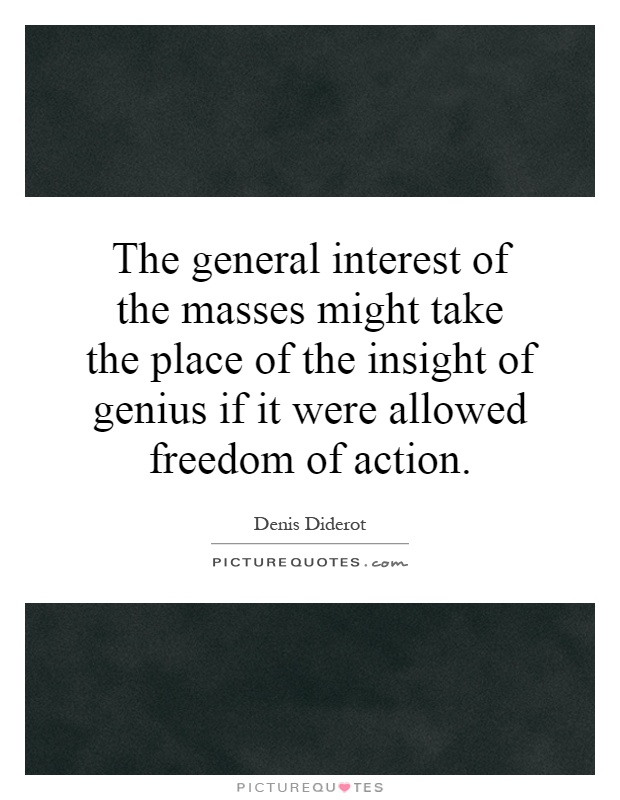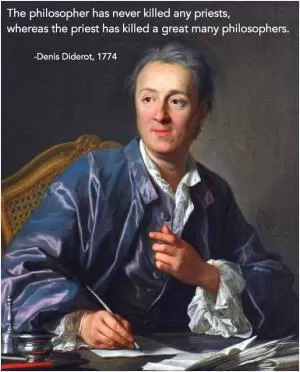The general interest of the masses might take the place of the insight of genius if it were allowed freedom of action

The general interest of the masses might take the place of the insight of genius if it were allowed freedom of action
Denis Diderot, a prominent figure of the Enlightenment era, was a firm believer in the power of the masses and their ability to shape society. He believed that the general interest of the masses could potentially surpass the insight of genius if given the freedom to act and express themselves. Diderot was a strong advocate for democracy and believed that the collective wisdom of the people should be valued and respected.Diderot's views on the general interest of the masses taking the place of the insight of genius can be seen in his work as the editor of the Encyclopédie, a groundbreaking encyclopedia that aimed to compile and disseminate knowledge to the public. Diderot believed that knowledge should be accessible to all, not just the elite few, and that the collective intelligence of the masses could lead to new insights and innovations.
In his writings, Diderot often criticized the rigid social hierarchies and structures that limited the freedom and potential of the common people. He believed that by allowing the general interest of the masses to flourish, society as a whole would benefit from a diversity of perspectives and ideas. Diderot saw the potential for greatness in the collective actions of ordinary individuals, rather than relying solely on the brilliance of a few exceptional minds.
Diderot's belief in the power of the masses was not without its critics, as some saw his ideas as a threat to the established order and authority. However, Diderot remained steadfast in his belief that the general interest of the masses should be valued and respected, and that their freedom of action should be protected.












 Friendship Quotes
Friendship Quotes Love Quotes
Love Quotes Life Quotes
Life Quotes Funny Quotes
Funny Quotes Motivational Quotes
Motivational Quotes Inspirational Quotes
Inspirational Quotes